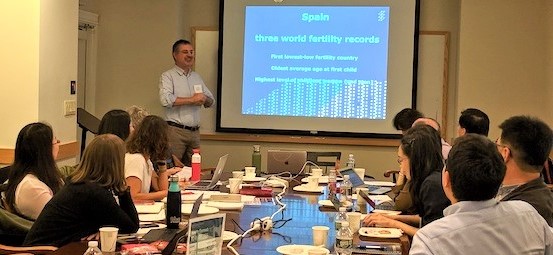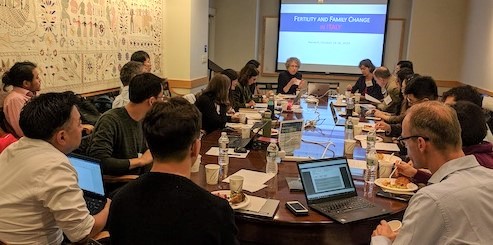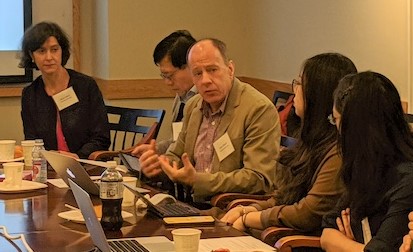Family Change in East Asia and Southern EuropeHarvard University, Cambridge (MA), United States, 25-26 October 2019
Organizing committee: Mary Brinton (Harvard University), Paul Chang (Harvard University), Jim Raymo (Princeton University)
The IUSSP Scientific Panel on Family Behaviour in East Asia and Southern Europe organized a seminar at Harvard University in Cambridge, MA (USA) on October 25-26, 2019. The seminar was sponsored by the Harvard Center for Population and Development Studies and the Edwin O. Reischauer Institute of Japanese Studies at Harvard University.
Although East Asian and Southern European populations are often referred to as “strong family countries,” they currently have some of the lowest fertility rates in the world. While many explanations have been offered for low fertility in these regions or in specific countries within these regions, there has been little attempt to evaluate those explanations as part of a comprehensive framework in cross-national comparative perspective. The overarching goal of this scientific panel is to develop and empirically evaluate a broad, comprehensive set of questions focused on demographic similarities (and differences) between and within East Asia and Southern Europe. An essential first step toward this goal is a solid, shared understanding of demographic trends in these countries and the social, economic, and political context in which they have unfolded. To this end, the conference featured five presentations by experts on the demography of Italy, Spain, Japan, Korea, and China. In addition to providing overviews of recent demographic trends, these presentations discussed four key features of each society: gender inequality, family ties, life course uncertainty, and the policy environment.
The seminar brought together 19 scholars from the Italy, Spain, China, Japan, and the United States and several graduate students and postdoctoral fellows from Harvard. The five papers were followed by extended discussion which generated ideas for new collaborative efforts. The seminar was preceded by a talk on October 23rd by Letizia Mencarini (Bocconi University, Milan and a scientific panel steering committee member) at the Harvard Center for Population and Development Studies Social Demography Seminar. Dr. Mencarini’s talk focused on generalized trust as a potentially important part of explanations for regional variation (both across and within countries) in fertility and provided a provocative and insightful lead-in to the conference.
The Panel’s steering committee also met to plan for follow up meetings next year in Milan and Beijing.
|



